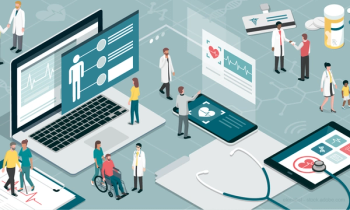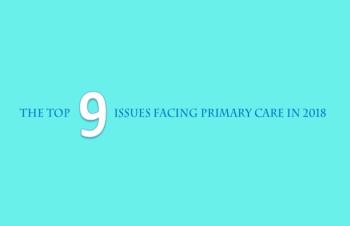
How portals help patients take ownership of their own health

How portals help patients take ownership of their own health

The IoMT could potentially make managing chronic conditions more efficient and more cost-effective. But first physicians have to learn what these devices are and how they can be used safely and effectively.

How a more thoughtful EHR can deliver a better experience for both sides.

From booking first appointments to follow-ups and final billing, providers should consider how they can make the patient experience better.

A survey of 2,428 U.S. consumers and 158 physicians conducted by consulting firm EY found that both groups want to embrace new technology that improve engagement.

Machine learning technologies offer providers opportunities to address rising risk and deliver better care.

Blockchain technology has the potential to transform and improve healthcare in three areas: the drug and device supply chain, medical staff credentialing, and EHRs.

What patients want is a single and rewarding patient experience across all touchpoints, which can be best achieved by following these hybrid communication best practices.

A new analysis points to lack of training on how to use EHRs as the chief cause of physician dissatisfaction.

Physicians spend their lives analyzing problems-so why not translate those skills to developing doctor-friendly technology solutions?

Millennial and Generation Z patients demand convenience and quicker access, experts say

Emerging growth and quality opportunities accompany CMS’s growing enthusiasm for RPM.

With the implementation of electronic health records, the country has seen a rise in what used to be a relatively rare malpractice situation: medical liability claims with an EHR as a contributing factor.

Who says tech startups are just for the techies? Doctors, especially those who are business-savvy, make great tech founders, too.

A survey of members of America’s Health Insurance Plans (AHIP), the national trade association for insurers, shows that the importance of virtual care is increasing. The results indicate that virtual care is widely and readily available to most patients through their health plans.

Practices are increasingly coming under attack by cyber criminals, so physicians must take steps to improve their security efforts.

A recent patient survey finds that online ratings and patient comments play a significant role in many people’s choice of healthcare providers.

The federal government recently finalized a rule that will allow Medicare Advantage plans to offer telemedicine as a core benefit.

Technology can serve a higher purpose in healthcare by enabling clinicians to easily communicate and share information without having to taking time away from patient care.

A slideshow of the biggest challenges facing primary care in 2018.

Primary care practices that offer retinal exams via telemedicine can prevent blindness while boosting quality scores.

Electronic health records hold significant potential for improving patient care, but they also present doctors with new ethical challenges they didn’t face in the era of paper charts.

Policy changes, physician adoption of telehealth technologies to help advance patient care options, survey reports


Given the increased utilization of telemedicine, federal prosecutors and regulators are beginning to take note.